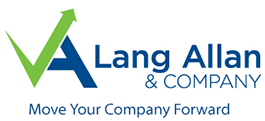Crowdfunding is a method of raising money through websites by soliciting contributions from a large number of people, according to an IRS definition. One source notes that crowdfunding projects generate $17.2 billion a year in North America.
Organizers may solicit contributions to fund businesses, for charitable donations, or for gifts. In some cases, crowdfunding organizers raise money on behalf of other people or businesses. In other situations, people establish crowdfunding campaigns to raise money for themselves or their businesses.
Form 1099-K May be Required
The crowdfunding website or its payment processor may be required to report distributions of money raised by filing Form 1099-K, Payment Card, and Third-Party Network Transactions, if the amount distributed meets certain reporting thresholds. In that case, the crowdfunding website or its payment processor must also furnish a copy of that form to the person to whom the distributions are made. However, the American Rescue Plan Act clarifies that the crowdfunding website or its payment processor is not required to file Form 1099-K if the contributors to the crowdfunding campaign do not receive goods or services for their contributions.
Prior to 2022, the threshold for a crowdfunding website or payment processor to file and furnish a Form 1099-K was met if, during a calendar year, the total of all payments distributed to a person exceeded $20,000 in gross payments resulting from more than 200 transactions or donations. For calendar years beginning after Dec. 31, 2021, the threshold is lowered and is reached if, during a calendar year, the total of all payments distributed to a person exceeds $600 in gross payments, regardless of the number of transactions or donations.
Keep Track of the Paperwork
A person receiving a Form 1099-K for distributions of money raised through crowdfunding may not recognize the filer’s name on the form. Sometimes the payment processor used by the crowdfunding website, rather than the crowdfunding website itself, will issue the Form 1099-K and be included as the filer on the form. If the recipient of a Form 1099-K does not recognize the filer’s name or the amounts included on the Form 1099-K, the recipient can use the filer’s telephone number listed on the form to contact a person knowledgeable about the payments reported.
Box 1 on Form 1099-K will show the gross amount of the distributions made to a person during the calendar year, but issuance of a Form 1099-K doesn’t automatically mean the amount reported on the form is taxable to the person receiving the form. As discussed below, the income tax consequences depend on all the facts and circumstances.
Tax Treatment of Money Raised Through Crowdfunding
Under federal tax law, gross income includes all income from whatever source derived unless it is specifically excluded from gross income by law. In most cases, the property received as a gift is not included in the gross income of the person receiving the gift.
If a crowdfunding organizer solicits contributions on behalf of others, distributions of the money raised to the organizer may not be included in the organizer’s gross income if the organizer further distributes the money raised to those for whom the crowdfunding campaign was organized.
If crowdfunding contributions are made as a result of the contributors’ detached and disinterested generosity and without the contributors receiving or expecting to receive anything in return, the amounts may be gifts and therefore may not be includible in the gross income of those for whom the campaign was organized. Contributions to crowdfunding campaigns are not necessarily a result of detached and disinterested generosity and therefore may not be gifted. Additionally, contributions to crowdfunding campaigns by an employer to, or for the benefit of, an employee is generally includible in the employee’s gross income.
Whether you are a donor, organizer, or recipient of a crowdfunding campaign, keep careful records.
You don’t need to tackle this on your own. Reach out to us. We can help you with the tax ins and outs, plus the other accounting and regulatory requirements.
